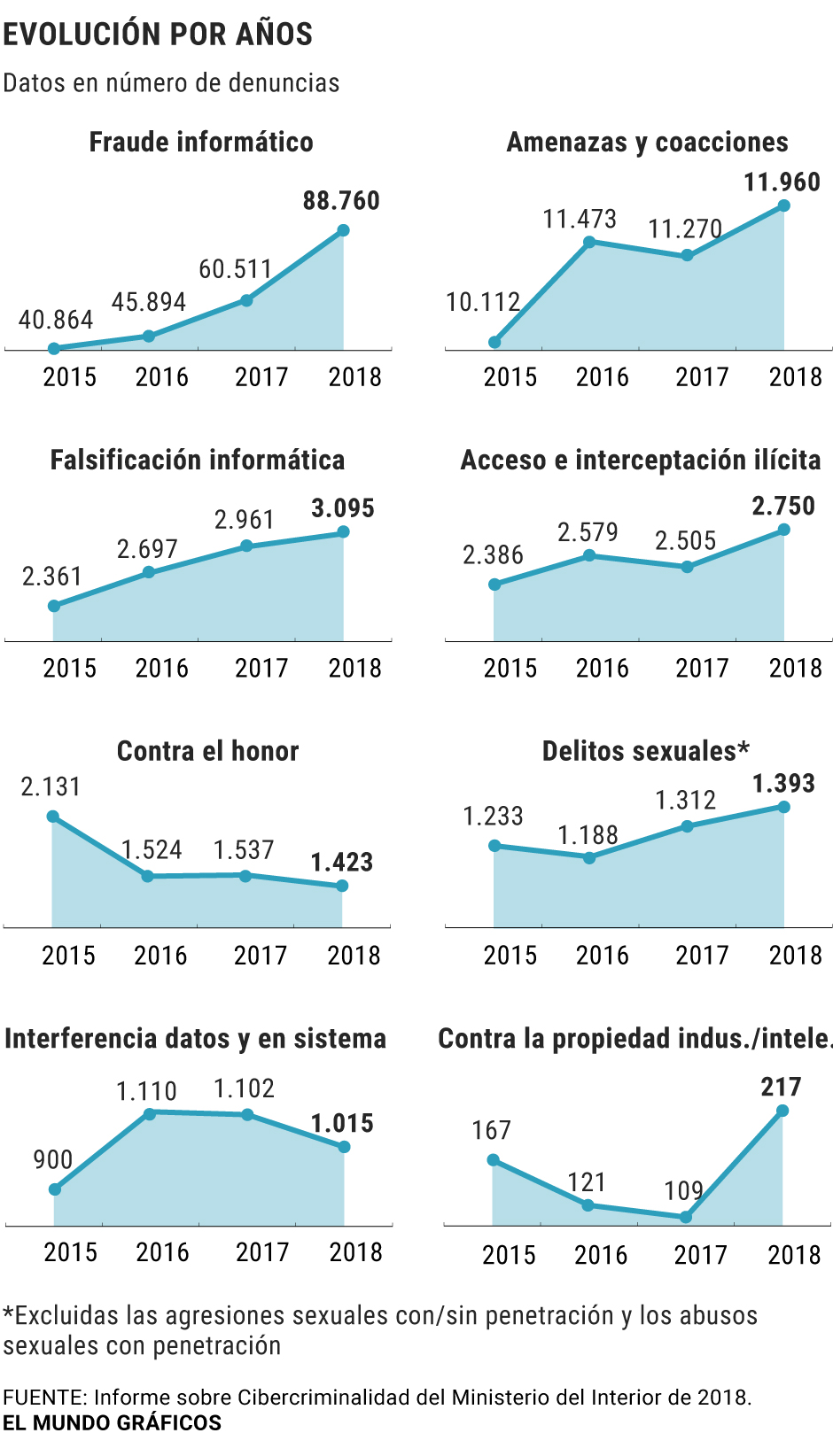If I thought that just by having a complicated password for every place where you shop was going to be more secure, you're wrong. If you thought that asking for the number behind the credit card (CVV) to pay on the web is a safety demonstration, you should know that it is not saved. But it is not even if you receive an SMS to your mobile from the bank to confirm a digital payment.
Cyberframes have reached a new level this year, because criminals are the first to evolve once their traditional systems are detected. And so the Police, on these dates that attract the largest number of purchases of the year, warns: the most common frauds have moved to payments through digital banking. The trick is to clone mobile cards , so that thieves receive the code that the bank sends by SMS to authorize a purchase and can swell to spend money from others.
The duplication of the SIM card can have several modalities, but the agents of the Central Brigade Against Computer Fraud of the Central Cybercrime Unit have found many cases throughout this 2019 where the involvement, voluntarily or not, of the employee of A store has been fundamental.
If it is a voluntary implication, it is difficult to detect it before, but in the other case, it is mostly a lack of prevention measures in stores.
Imagine the following case: scammers get data from us, something that on the other hand is becoming easier: name, surname, telephone, ID number, email ... And they are planted in a store to say that they are us, and They have lost the SIM card and need a duplicate.
With something as simple as that, the bank's SMS would reach the criminals, while we would be without a phone (our SIM would be removed through the store).
This criminal modality is called SIM swap ("SIM change") and apart from facilitating bank payments with the verification message, they allow the offender to obtain all personal data that may be stored in it. In fact, Cybercrime agents warn that "if the mobile is compromised any operation that is performed with it is potentially dangerous."
Reviewing the changes of recent years, police experts have encountered the inevitable: technological improvements, which have brought much convenience to electronic commerce, have also multiplied the fraud and have led to new forms of crime.
When shopping, they say, you don't just have to be careful about stealing credit card data or swap SIM. Sometimes, and this year there have been several important cases, the problem is on the websites themselves from which it is purchased. None are exempt from fraud or cease to be exposed even if I tried, as was seen a few months ago with Ticketmaster, which is one of the pages that invests most in cybersecurity worldwide and, nevertheless, had to regret the theft of data from Three million customers in 2018 for a massive hack. Data that included credit cards.
However, in these cases it is the victim's own e-commerce website, as well as its customers. But other times it is false shopping websites that scam directly to the customer, as happened in the case of Lupine.
These scammers take the opportunity to deceive the buyer with false offers of extremely cheap prices, products that nevertheless never reach the buyer. Agents explain that there has been a massive increase in this type of online stores in recent times.
Most of the computer crimes that are recorded are fraud, to the point that according to the latest available cybersecurity report from the Ministry of Interior, which includes the 2018 data, it shows that fraud accounts for approximately 80% of known crimes ( 88,760 out of a total of 110,613). But not only that: the figure is more than double what it was in 2015 (40,864 known cyberframes).
And of them, about 70% are carding, that is, illegitimate use of credit cards. Another 15% is framed within shopping scams, including items or tickets and second-hand products here.
Police tips to avoid cyber fraud
Drop down
As the National Police explains on its own website, some tips to increase internet security measures are:
"Use " quality "passwords (with letters, numbers and other characters). Change them periodically.
Do not dismiss security measures by choosing "the secret question", you may be leaving an open door to your email accounts and social profiles. Update your operating system according to the manufacturer or distribution recommendations.
Buy a good antivirus product and update it regularly. Make regular backup copies of your system.
Never offer personal data on the Internet, unless it is in trusted sites. Check the certificates.
Do not enter the card number on pages of sexual or pornographic content, in which it is requested as a pretext, to verify the age of majority. Extreme caution in the files you receive in chat sessions.
Do not provide your telephone numbers, both landline and mobile, to unknown persons or on websites that do not offer you sufficient trust. "
they reach new levels every day and these dates, together with Black Friday, are
According to the criteria of The Trust Project
Know more
